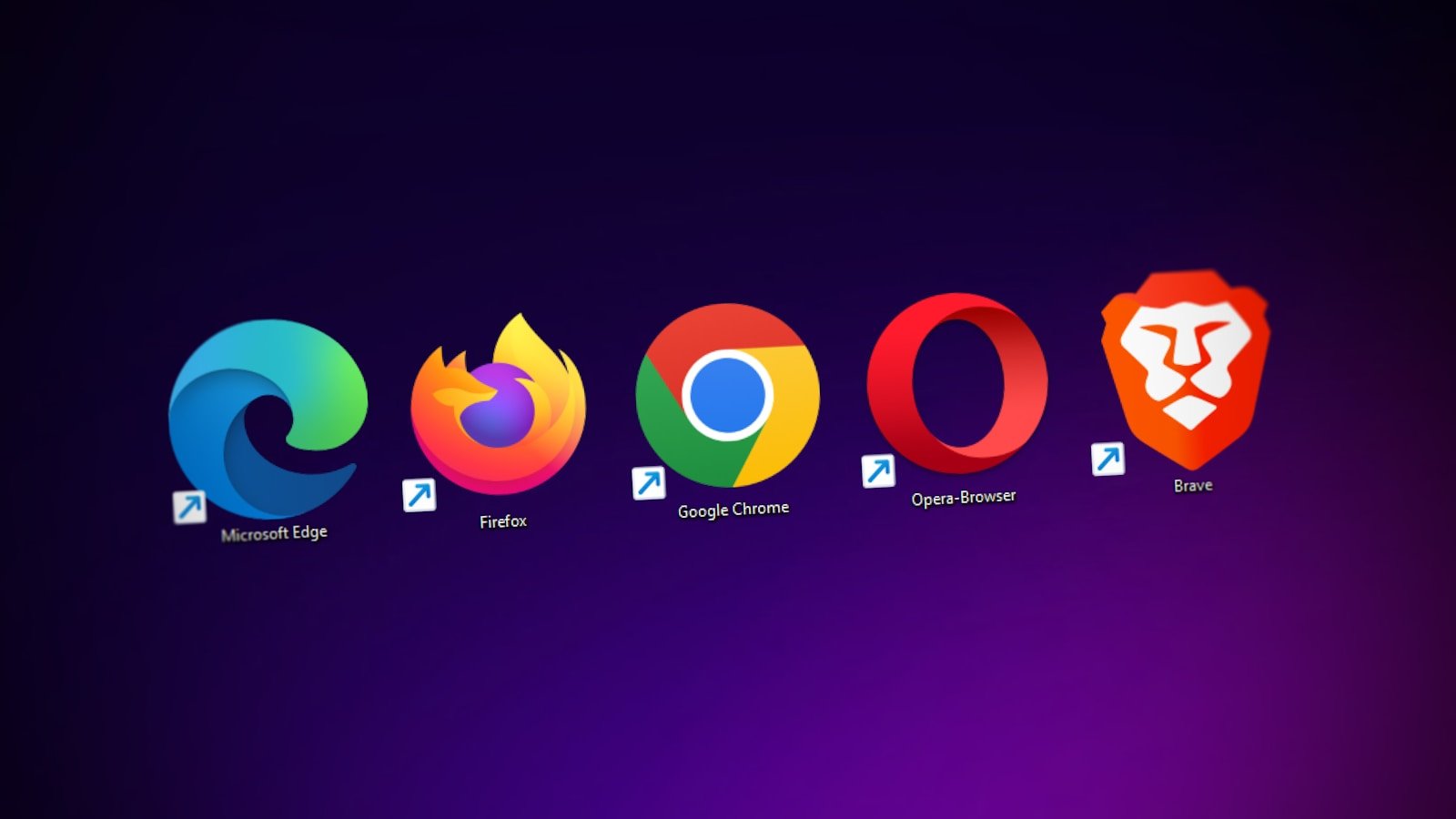Are you tired of slow browsers that track your every move online? Brave Browser offers a refreshing alternative to traditional web browsers like Google Chrome. It’s a free, open-source browser built on Chromium that puts your privacy first while delivering impressive speed.
Brave Browser blocks privacy-invading ads and trackers by default, which makes it up to three times faster than Google Chrome. This built-in blocking means fewer elements to load on each webpage, resulting in quicker browsing and less data usage. Unlike other browsers where you need to install separate extensions for privacy protection, Brave comes ready to shield your online activities right out of the box.
The browser has gained popularity among privacy-conscious users who want to enjoy modern web features without sacrificing their personal data. While some critics have questioned aspects of Brave’s business model, many users appreciate its combination of speed, security features, and user-friendly interface that makes protecting your privacy online simpler than ever before.
What Is Brave Browser?
A Complete Guide to the Privacy-Focused Web Browser (2025 Edition)
Brave Browser is a free, open-source web browser developed by Brave Software, Inc., co-founded by Brendan Eich (creator of JavaScript and co-founder of Mozilla). First released in 2016, Brave is built on Chromium, the same open-source project behind Google Chrome — but it’s designed with privacy, speed, and security at its core (Wikipedia).
🔒 1. Key Focus: Privacy and Security
Brave is built to protect users from online tracking, intrusive ads, and fingerprinting by default. Unlike most browsers, Brave doesn’t rely on third-party extensions for privacy — it’s built right in.
✨ Core Privacy Features
According to Brave’s official site and GeeksforGeeks, Brave includes:
- Brave Shields: Blocks ads, trackers, and third-party cookies automatically.
- Fingerprinting Protection: Prevents websites from identifying you through your device’s unique characteristics.
- Private Browsing with Tor: Integrates Tor for enhanced anonymity (hides your IP address).
- HTTPS Everywhere: Automatically upgrades connections to secure HTTPS.
- Cookie Blocking: Stops cross-site tracking cookies by default.
These features make Brave one of the most privacy-respecting browsers available today.
⚡ 2. Performance and Speed
Because it blocks ads and trackers, Brave loads pages 3x to 6x faster than Chrome or Firefox, according to TechRadar’s review.
This not only improves browsing speed but also saves data and battery life — a big plus for mobile users.
💰 3. Brave Rewards and BAT (Basic Attention Token)
Brave introduces a unique, opt-in advertising model:
- Users can choose to see privacy-respecting ads.
- In return, they earn Basic Attention Tokens (BAT) — a cryptocurrency based on the Ethereum blockchain.
- BAT can be used to tip creators, support websites, or redeem rewards.
This system aims to create a fairer web economy where users, publishers, and advertisers all benefit.
🌍 4. How Brave Differs from Other Browsers
| Feature | Brave | Chrome | Firefox | Safari |
|---|---|---|---|---|
| Built-in ad blocking | ✅ Yes | ❌ No | ❌ No | ❌ No |
| Tracker blocking | ✅ Default | ⚠️ Limited | ✅ Partial | ✅ Partial |
| Private mode with Tor | ✅ Yes | ❌ No | ❌ No | ❌ No |
| Crypto wallet integration | ✅ Built-in | ⚠️ Extension required | ❌ No | ❌ No |
| Speed | 🚀 Very fast | ⚡ Fast | ⚡ Moderate | ⚡ Moderate |
Brave’s privacy-first design and built-in crypto features make it stand out from traditional browsers.
🧭 5. Brave Wallet and Web3 Integration
Brave includes a native crypto wallet, eliminating the need for extensions like MetaMask.
You can:
- Store, send, and receive cryptocurrencies (like BAT, ETH, SOL, and BTC).
- Connect to Web3 and DeFi platforms securely.
- Manage NFTs directly from the browser.
This makes Brave one of the first mainstream browsers ready for Web3.
📱 6. Platforms and Availability
Brave is available on all major platforms:
- Desktop: Windows, macOS, Linux
- Mobile: iOS, Android
- Sync: Brave Sync allows encrypted syncing of bookmarks and settings across devices.
Download it from brave.com.
⚙️ 7. Pros and Cons
✅ Pros
- Excellent privacy protection out-of-the-box
- Fast and lightweight performance
- Built-in ad blocker and crypto wallet
- Earn rewards via Brave Rewards
- Open-source and transparent
⚠️ Cons
- Some sites may break due to aggressive ad blocking
- BAT rewards system not available in all regions
- Smaller extension ecosystem than Chrome
(Source: UMA Technology)
🔚 8. Final Thoughts
Brave Browser is ideal for users who value privacy, speed, and control over their online experience. It’s a modern alternative to Chrome — without the tracking, ads, or data collection.
If you want a browser that puts you, not advertisers, first — Brave is one of the best choices in 2025.
🦁 Quick Summary
| Category | Brave’s Strength |
|---|---|
| Privacy | Built-in ad/tracker blocking |
| Speed | 3–6× faster than Chrome |
| Security | HTTPS upgrades, Tor mode |
| Rewards | Earn BAT for viewing ads |
| Web3 | Integrated crypto wallet |
Key Takeaways
- Brave Browser blocks ads and trackers by default, making it significantly faster than traditional browsers like Chrome.
- Privacy protection is built directly into Brave, eliminating the need for additional security extensions.
- Brave offers a familiar browsing experience with the speed and security benefits that privacy-conscious users value.
Understanding Brave Browser
Brave Browser offers a unique approach to web browsing with privacy, security, and speed at its core. It aims to revolutionize the traditional browsing experience by blocking trackers and unwanted ads while maintaining compatibility with Chrome extensions.
History and Development
Brave Software, Inc. was founded in 2015 by Brendan Eich, co-founder of Mozilla and creator of JavaScript. The browser was officially released in 2016 as an open-source project built on the Chromium codebase—the same foundation used by Google Chrome.
Since its inception, Brave has focused on addressing privacy concerns that plague the modern internet. The development team has consistently added features to protect users from tracking, fingerprinting, and unwanted advertising.
Brave also pioneered a new revenue model for content creators through its Basic Attention Token (BAT), an Ethereum-based cryptocurrency. This system allows users to support websites directly rather than through intrusive advertising.
Brave’s Core Features
Brave Shields serves as the browser’s primary defense mechanism, automatically blocking trackers, invasive ads, and fingerprinting attempts. Unlike traditional ad blockers, this functionality is built directly into the browser.
The browser boasts impressive performance metrics, typically loading pages faster than competitors due to reduced tracking scripts and advertisements. Many users report lower resource usage compared to Chrome and Firefox.
For enhanced privacy, Brave offers Private Windows with Tor integration. This feature routes browsing through the Tor network, masking the user’s IP address and browsing activity.
Brave also includes:
- Built-in crypto wallet for managing digital assets
- HTTPS Everywhere for secure connections
- Customizable privacy settings to fine-tune protection levels
Brave vs Other Browsers
When compared to Google Chrome, Brave offers similar functionality with significantly enhanced privacy protection. Both browsers support the same extensions, but Brave consumes fewer system resources and blocks trackers by default.
Firefox, another privacy-focused alternative, matches many of Brave’s privacy features but operates on a different codebase. Brave generally outperforms Firefox in speed tests while maintaining comparable privacy standards.
Microsoft Edge and Opera have incorporated some privacy features, but neither matches Brave’s comprehensive approach to blocking trackers and ads without user configuration.
This table summarizes key differences:
| Feature | Brave | Chrome | Firefox | Edge |
|---|---|---|---|---|
| Ad blocking | Built-in | Requires extension | Partial | Limited |
| Resource usage | Low | High | Medium | Medium |
| Privacy focus | Very high | Low | High | Medium |
| Chromium-based | Yes | Yes | No | Yes |
Enhancing Privacy and Security
Brave browser makes privacy and security its top priorities. It includes several built-in features that protect users from common online threats while maintaining a fast browsing experience.
Brave Shields
Brave Shields is the browser’s main privacy protection tool. It automatically blocks advertisements, trackers, and fingerprinting attempts without requiring additional extensions. Users can see how many items Brave blocks on each website through a counter in the address bar.
Shields works by default on every website but can be adjusted for individual sites. Users can choose different levels of protection from “Standard” to “Aggressive” depending on their needs.
The tool also blocks malvertising—malicious ads that can install malware on devices. By removing these harmful elements, Brave not only protects privacy but also speeds up page loading times significantly.
Brave Shields also enforces HTTPS connections whenever possible, upgrading insecure connections to protect user data during transmission.
Use of Tor in Brave
Brave offers private browsing with Tor integration, providing an additional layer of anonymity. This feature routes connections through the Tor network, hiding the user’s IP address and making it difficult to track their location or identity.
When using a Private Window with Tor, each browsing session gets a new circuit, preventing websites from linking different visits to the same user. This provides stronger privacy than standard private browsing modes in other browsers.
Tor integration helps users access content that might be blocked in their region. It also makes it harder for internet service providers to monitor browsing activity.
While not as comprehensive as the dedicated Tor Browser, this built-in feature offers convenient access to Tor’s privacy benefits without requiring a separate installation.
Data Protection
Brave doesn’t collect personal browsing data or track user behavior across websites. Unlike many browsers, it doesn’t have user-identifying telemetry systems that report back to the company.
The browser offers granular privacy settings that let users control what data is stored. These include options to clear browsing history, cookies, and cached files automatically when closing the browser.
Brave’s “Do Not Track” feature is enabled by default, sending signals to websites requesting they not track the user. Though compliance varies by site, this adds another layer of privacy protection.
For additional security, Brave prevents browser fingerprinting—a technique websites use to identify users based on their browser configuration. This protection works even without blocking scripts or breaking website functionality.
Users can also install privacy-focused extensions for added protection, though many features that would require add-ons in other browsers come built into Brave.
User Experience
Brave Browser offers a smooth, intuitive interface that balances functionality with privacy protection. Users often report that the transition from other browsers feels natural, especially for those coming from Chrome since both use the Chromium engine.
Customization and Extensions
Brave supports most Chrome extensions, making it easy for users to maintain their favorite tools when switching browsers. The browser comes with a clean, customizable interface where users can arrange bookmarks, adjust themes, and organize their workspace to suit their preferences.
Users can personalize their start page with different background options and layouts. Brave also includes built-in features that other browsers require extensions for, such as:
- Ad and tracker blocking
- HTTPS Everywhere
- Script blocking
- Cookie control
These native features reduce the need for additional extensions, which can help maintain better performance. The Shield icon in the address bar gives quick access to site-specific privacy settings, letting users fine-tune their protection level for each website they visit.
Performance Metrics
Brave consistently outperforms Chrome and Firefox in speed tests. Pages load significantly faster—often 2-6 times quicker than other browsers—because the built-in ad blocker eliminates the need to download and process advertisements.
Memory usage is noticeably lower compared to Chrome, allowing for:
- Smoother multitasking with many tabs open
- Better performance on older computers
- Longer battery life on laptops
In benchmark testing, Brave shows impressive results:
| Metric | Brave | Chrome | Firefox |
|---|---|---|---|
| Page load time | Faster | Slower | Slower |
| Memory usage | Lower | Higher | Medium |
| Battery impact | Less | More | Medium |
The browser launches quickly and maintains responsiveness even when handling resource-intensive web applications. This performance advantage makes Brave particularly appealing for users with limited system resources or those who keep many tabs open simultaneously.
Brave Rewards and Ecosystem
Brave browser offers a unique ecosystem that rewards users while protecting their privacy. The Brave ecosystem combines innovative advertising, cryptocurrency integration, and privacy-focused search functionality to create a comprehensive browsing experience.
Brave Ads and Rewards Program
Brave Rewards lets users earn by viewing privacy-respecting advertisements. Unlike traditional browsers, Brave blocks invasive trackers and ads by default. Users who opt into Brave Rewards can view non-intrusive Brave Ads and earn Basic Attention Tokens (BAT) as compensation for their attention.
These ads appear as system notifications and don’t interrupt the browsing experience. Users typically receive 70% of the ad revenue generated when they view these ads.
Content creators and publishers can also benefit from this system. Users can set up automatic monthly contributions or send one-time tips in BAT to websites, YouTubers, and other creators they enjoy. This creates a direct support channel between audiences and content producers.
The program operates on an opt-in basis, ensuring users maintain complete control over their participation.
Basic Attention Tokens (BAT) and DeFi
BAT is the cryptocurrency that powers the Brave ecosystem. Built on the Ethereum blockchain, BAT represents the value of user attention within the digital advertising space.
Users earn BAT through viewing Brave Ads. These tokens can be:
- Used to tip content creators
- Contributed to favorite websites
- Exchanged for other cryptocurrencies or fiat money
- Utilized in various DeFi (Decentralized Finance) applications
Brave has integrated DeFi capabilities, allowing users to earn interest on their BAT through partnerships with platforms like Gemini and Uphold. This integration connects the browser directly to the broader cryptocurrency ecosystem.
BAT tokens represent real value and can be traded on major cryptocurrency exchanges. This creates a transparent, blockchain-based advertising system that benefits both users and publishers.
Introducing Brave Search
Brave Search is the company’s privacy-focused search engine that complements the browser experience. Unlike Google, Brave Search doesn’t track user queries or build advertising profiles.
The search engine uses its own independent index rather than relying entirely on results from Google or Bing. This gives users truly independent search results free from the influence of dominant search providers.
Key features include:
- No tracking or profiling of users
- Transparent ranking methods
- Independence from Big Tech influence
- Integration with the Brave browser
While newer than established alternatives, Brave Search continues to improve its coverage and relevance. For specialized queries where its index might be limited, it can optionally incorporate results from Bing while maintaining user privacy.
Frequently Asked Questions
Many users have questions about Brave browser’s features, capabilities, and how it compares to other browsers. These common questions cover privacy protections, ad-blocking, cost, platform availability, search engine functionality, and advanced privacy options.
What are the privacy features of Brave browser?
Brave browser includes several strong privacy features that protect users’ data. It blocks trackers and intrusive ads by default, preventing companies from collecting browsing information.
The browser offers fingerprint protection that stops websites from identifying users based on their device characteristics. This feature makes every Brave user look the same to tracking systems.
Brave also includes HTTPS Everywhere, which automatically upgrades connections to secure HTTPS when available. This prevents eavesdropping and data theft when browsing websites.
How does Brave browser compare to other browsers in terms of ad-blocking capabilities?
Brave blocks ads automatically without requiring additional extensions. This built-in functionality gives it an advantage over browsers like Chrome and Firefox, which need third-party ad blockers.
The built-in ad blocker is highly effective and helps pages load much faster than competitors. According to search results, websites load noticeably quicker than on Chrome.
Brave’s approach to blocking ads also reduces resource usage, making it more efficient than other browsers. This creates a cleaner, less cluttered browsing experience.
Is there a cost associated with downloading and using the Brave browser?
Brave browser is completely free to download and use. There are no subscription fees or premium tiers required to access its privacy features.
The browser operates on an optional rewards system where users can choose to view privacy-respecting ads and earn cryptocurrency tokens. This system is entirely voluntary.
All of Brave’s core features, including ad-blocking and privacy protections, are available at no cost to all users.
What platforms support the Brave browser and where can it be downloaded?
Brave browser is available on all major operating systems including Windows, macOS, and Linux. This cross-platform support allows users to maintain a consistent browsing experience.
Mobile versions exist for both iOS and Android devices with similar privacy features as the desktop version. These can be downloaded from their respective app stores.
Users can download Brave directly from the official website at brave.com or through authorized app stores. This ensures they get the authentic, secure version of the software.
How does Brave browser’s built-in search engine differ from other popular search engines?
Brave Search is designed as a privacy-preserving alternative to Google and other major search engines. It doesn’t track user searches or create personalized profiles.
According to the search results, Brave Search represents the “industry’s first independent, privacy-preserving alternative” to Google’s ecosystem. This gives users a complete solution separate from Google’s products.
The search engine still provides relevant results while maintaining user privacy. It aims to deliver quality search experiences without the data collection common to competitors.
Can the Brave browser integrate with Tor for enhanced privacy?
Yes, Brave offers Private Windows with Tor connectivity as mentioned in the search results. This feature provides enhanced anonymity when browsing.
Tor integration routes traffic through multiple servers, making it difficult to track a user’s location or browsing activity. This offers significantly stronger privacy than standard private browsing modes.
Users can easily access this feature through Brave’s menu system. It’s built directly into the browser, requiring no additional software installation or configuration.







